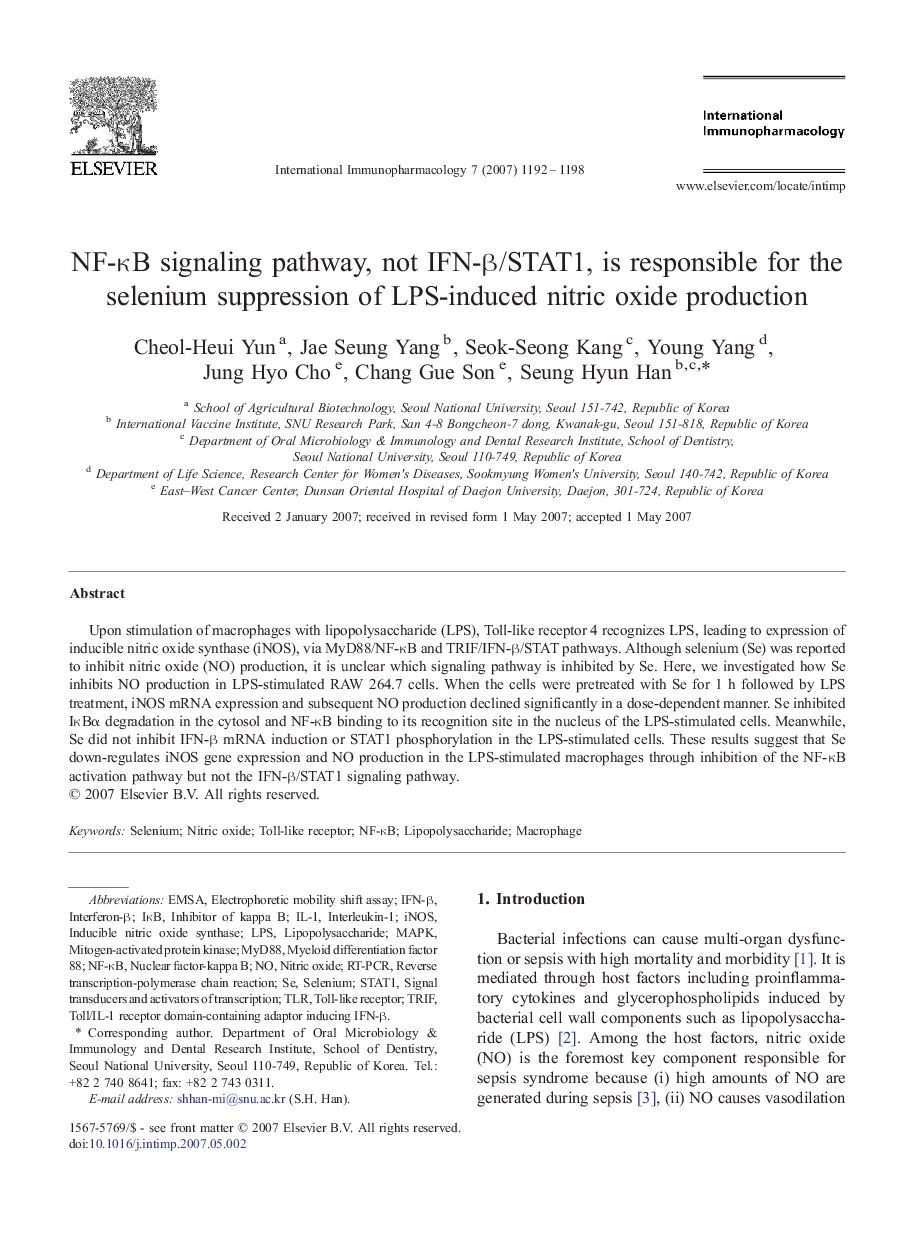| Article ID | Journal | Published Year | Pages | File Type |
|---|---|---|---|---|
| 2542616 | International Immunopharmacology | 2007 | 7 Pages |
Upon stimulation of macrophages with lipopolysaccharide (LPS), Toll-like receptor 4 recognizes LPS, leading to expression of inducible nitric oxide synthase (iNOS), via MyD88/NF-κB and TRIF/IFN-β/STAT pathways. Although selenium (Se) was reported to inhibit nitric oxide (NO) production, it is unclear which signaling pathway is inhibited by Se. Here, we investigated how Se inhibits NO production in LPS-stimulated RAW 264.7 cells. When the cells were pretreated with Se for 1 h followed by LPS treatment, iNOS mRNA expression and subsequent NO production declined significantly in a dose-dependent manner. Se inhibited IκBα degradation in the cytosol and NF-κB binding to its recognition site in the nucleus of the LPS-stimulated cells. Meanwhile, Se did not inhibit IFN-β mRNA induction or STAT1 phosphorylation in the LPS-stimulated cells. These results suggest that Se down-regulates iNOS gene expression and NO production in the LPS-stimulated macrophages through inhibition of the NF-κB activation pathway but not the IFN-β/STAT1 signaling pathway.
